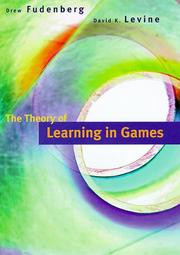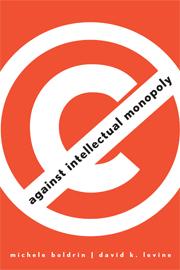| Listing 1 - 10 of 30 | << page >> |
Sort by
|
Book
Year: 2010 Publisher: Cambridge, Mass. National Bureau of Economic Research
Abstract | Keywords | Export | Availability | Bookmark
 Loading...
Loading...Choose an application
- Reference Manager
- EndNote
- RefWorks (Direct export to RefWorks)
Book
Year: 2013 Publisher: Cambridge, Mass. National Bureau of Economic Research
Abstract | Keywords | Export | Availability | Bookmark
 Loading...
Loading...Choose an application
- Reference Manager
- EndNote
- RefWorks (Direct export to RefWorks)
Digital
Year: 2010 Publisher: Cambridge, Mass. National Bureau of Economic Research
Abstract | Keywords | Export | Availability | Bookmark
 Loading...
Loading...Choose an application
- Reference Manager
- EndNote
- RefWorks (Direct export to RefWorks)
More advanced technologies demand higher degrees of specialization – and longer chains of production connecting raw inputs to final outputs. Longer production chains are subject to a “weakest link” effect: they are more fragile and more prone to failure. Optimal chain length is determined by the trade-off between the gains to specialization and the higher failure rate associated with longer chain length. There is a kind of reverse “Keynesian multiplier” that magnifies the effect of real shocks. Consequently, more advanced economies should have higher unemployment rates and be more prone to crisis. The implications of the theory both for measurement and government policy are examined.

ISBN: 0262061945 9780262061940 Year: 1998 Volume: 2 Publisher: Cambridge, Mass. MIT
Abstract | Keywords | Export | Availability | Bookmark
 Loading...
Loading...Choose an application
- Reference Manager
- EndNote
- RefWorks (Direct export to RefWorks)
Game theory. --- Théorie des jeux --- Théorie des jeux --- Operational research. Game theory --- Game theory --- Game Theory. --- Game Theory

ISBN: 9780521879286 0521879280 9780511510854 9780521127264 9780511410840 0511410840 9780511415449 0511415443 1107183766 1281751413 9786611751418 0511414765 0511510853 0511413173 0511412223 0511414099 0521127262 Year: 2008 Publisher: Cambridge Cambridge University Press
Abstract | Keywords | Export | Availability | Bookmark
 Loading...
Loading...Choose an application
- Reference Manager
- EndNote
- RefWorks (Direct export to RefWorks)
'Intellectual property' - patents and copyrights - have become controversial. We witness teenagers being sued for 'pirating' music - and we observe AIDS patients in Africa dying due to lack of ability to pay for drugs that are high priced to satisfy patent holders. Are patents and copyrights essential to thriving creation and innovation - do we need them so that we all may enjoy fine music and good health? Across time and space the resounding answer is: No. So-called intellectual property is in fact an 'intellectual monopoly' that hinders rather than helps the competitive free market regime that has delivered wealth and innovation to our doorsteps. This book has broad coverage of both copyrights and patents and is designed for a general audience, focusing on simple examples. The authors conclude that the only sensible policy to follow is to eliminate the patents and copyright systems as they currently exist.
Competition. --- Intellectual property --- Monopolies. --- Economic aspects. --- Combinations in restraint of trade --- Commercial corners --- Corners, Commercial --- Engrossing --- Forestalling --- Commercial crimes --- Trade regulation --- Competition --- Monopolistic competition --- Monopsonies --- Restraint of trade --- Trusts, Industrial --- Competition (Economics) --- Competitiveness (Economics) --- Economic competition --- Commerce --- Conglomerate corporations --- Covenants not to compete --- Industrial concentration --- Monopolies --- Open price system --- Supply and demand --- Economic aspects --- Business, Economy and Management --- Economics
Book
ISBN: 1282440985 9786612440984 9812818472 9789812818478 9789812818461 9812818464 9781282440982 6612440988 Year: 2009 Publisher: Singapore Hackensack, NJ World Scientific
Abstract | Keywords | Export | Availability | Bookmark
 Loading...
Loading...Choose an application
- Reference Manager
- EndNote
- RefWorks (Direct export to RefWorks)
This book brings together the joint work of Drew Fudenberg and David Levine (through 2008) on the closely connected topics of repeated games and reputation effects, along with related papers on more general issues in game theory and dynamic games. The unified presentation highlights the recurring themes of their work.
Game theory. --- Games, Theory of --- Theory of games --- Mathematical models --- Mathematics --- Game theory
Book
Year: 2008 Publisher: Cambridge: Cambridge university press,
Abstract | Keywords | Export | Availability | Bookmark
 Loading...
Loading...Choose an application
- Reference Manager
- EndNote
- RefWorks (Direct export to RefWorks)
Digital
Year: 2013 Publisher: Cambridge, Mass. National Bureau of Economic Research
Abstract | Keywords | Export | Availability | Bookmark
 Loading...
Loading...Choose an application
- Reference Manager
- EndNote
- RefWorks (Direct export to RefWorks)
In a model of evolution driven by conflict between societies more powerful states have an advantage. When the influence of outsiders is small we show that this results in a tendency to hegemony. In a simple example in which institutions differ in their “exclusiveness” we find that these hegemonies will be inefficiently “extractive” in the sense of having inefficiently high taxes, high compensation for state officials, and low welfare.
Digital
Year: 2000 Publisher: Minneapolis, Minn. Federal Reserve Bank of Minneapolis
Abstract | Keywords | Export | Availability | Bookmark
 Loading...
Loading...Choose an application
- Reference Manager
- EndNote
- RefWorks (Direct export to RefWorks)
Digital
Year: 2002 Publisher: Minneapolis, Minn. Federal Reserve Bank of Minneapolis
Abstract | Keywords | Export | Availability | Bookmark
 Loading...
Loading...Choose an application
- Reference Manager
- EndNote
- RefWorks (Direct export to RefWorks)
| Listing 1 - 10 of 30 | << page >> |
Sort by
|

 Search
Search Feedback
Feedback About UniCat
About UniCat  Help
Help News
News